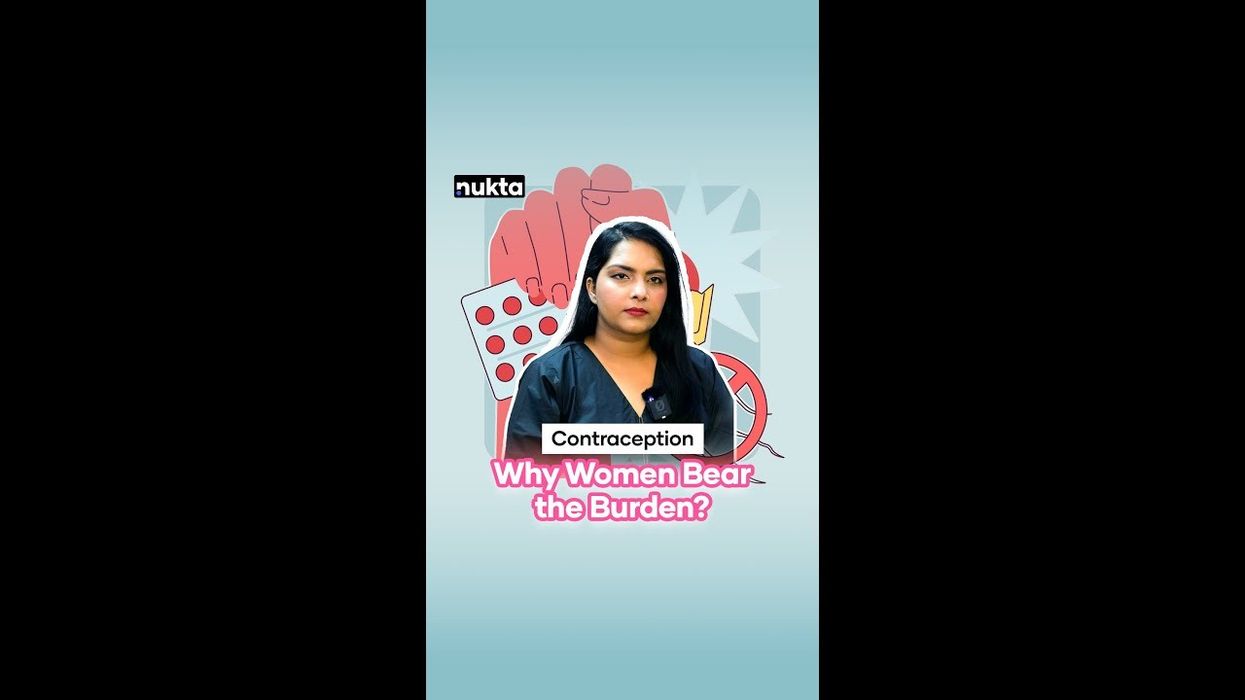Family planning: Are women paying a higher price?
Women often bear sole responsibility for contraception despite suffering physical and emotional side effects

Laiba Zainab
Correspondent
Laiba Zainab is an award-winning journalist with nearly a decade of experience in digital media. She has received the DW & CEJ-IBA Data Journalism Award and the top digital media prize at the National Media Fellowship. At NUKTA, she covers underreported stories on health, crime, and social justice.
Disagreements over planning threaten relationships
Only 34% of couples use contraception in Pakistan
Doctors push for better public education
When Sabeeka* married seven years ago at age 36, she felt like she was living a fairy tale, overjoyed to be marrying the love of her life.
Like many modern couples, she and her husband had discussed their future before tying the knot, agreeing to delay starting a family - a decision that would soon test their relationship in a society where family planning remains a sensitive topic.
The honeymoon period initially seemed perfect. Her husband was comfortable with using protection, but as months passed, his attitude began to shift. Not only did he become resistant to using condoms, but his entire perspective on having children changed dramatically. With these changes, Sabeeka watched her fairy tale begin to unravel.
"We had massive fights over the issue," Sabeeka recalls. "I didn’t want kids while he wanted them. He then told me that if you want to use contraception then you keep taking the pills, I won’t opt for any other method"
This conflict marked the beginning of a difficult journey that would impact every aspect of her life. The birth control pills she reluctantly began taking triggered severe mood swings, irregular menstrual cycles, and unwanted weight gain.
More devastating were the constant arguments with her husband that strained their marriage to its limits. Eventually, after seeing the toll it took on his wife, her husband agreed to consider alternative contraception methods.
Eventually, after seeing the toll it took on his wife, her husband agreed to consider alternative contraception methods.
A common struggle
Like Sabeeka, many women in Pakistan struggle with limited contraceptive choices and their side effects. According to the Pakistan Demographic Health Survey (PDHS) 2017-18, the country's Contraceptive Prevalence Rate (CPR) stands at only 34% - a stark indicator of the challenges couples face in accessing and using family planning methods.
Aleezay*, another woman facing similar challenges, chose to try birth control pills despite her husband's warnings about side effects. Driven by fears that condoms alone might fail, she persisted with the pills for a year before the adverse effects became too much to bear. Eventually, the couple agreed to combine condoms with the withdrawal method for their family planning needs.
Dr. Mehnaz Asim, a gynecologist with over two decades of experience, notes that not all women have the luxury of such compromise.
"Usually, the male partners refuse to use any sort of contraceptive measures, and the onus is on women," she explains. "Adverse effects of contraceptive methods used by women include hormonal imbalance, irregular periods, mood swings, and weight gain"
Understanding the options
For couples seeking family planning options, several choices are available, each with its own considerations.
For short-term prevention, emergency contraceptive pills can be taken within 24 to 48 hours after intercourse, though Dr. Asim cautions against using them more than twice a month. Daily oral contraceptives offer a reliable option for couples wanting to prevent pregnancy for one to two years, provided they're taken consistently at the same time each day.
For longer-term planning, the Copper T has emerged as Pakistan's most popular choice. This small, T-shaped intrauterine device (IUD) with copper wire wrapped around a plastic frame can effectively prevent pregnancy for up to 10 years once placed inside the uterus.
A more recent addition to contraceptive options is the birth control implant - a small, thin rod that is inserted under the skin of the upper arm. This device releases a steady, low dose of the hormone progestin to prevent pregnancy and remains effective for up to five years.
Looking ahead
Dr. Mehnaz believes that meaningful change requires broader public awareness and education.
"We tell people who visit our clinics what are different contraceptive methods and what their impact is," she explains. "Some women go for contraceptive measures secretly and suffer afterward. Given our population, we should tell people about family planning and social media can play a vital role in it."
As Pakistan grapples with its growing population, women like Sabeeka and Aleezay continue to navigate difficult choices alone. Their stories suggest that progress depends on one essential change: giving women more control over their reproductive health decisions.
*Identities have been changed.











Comments
See what people are discussing